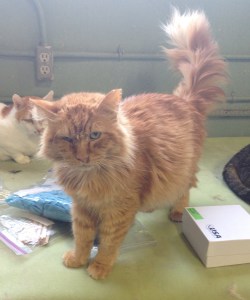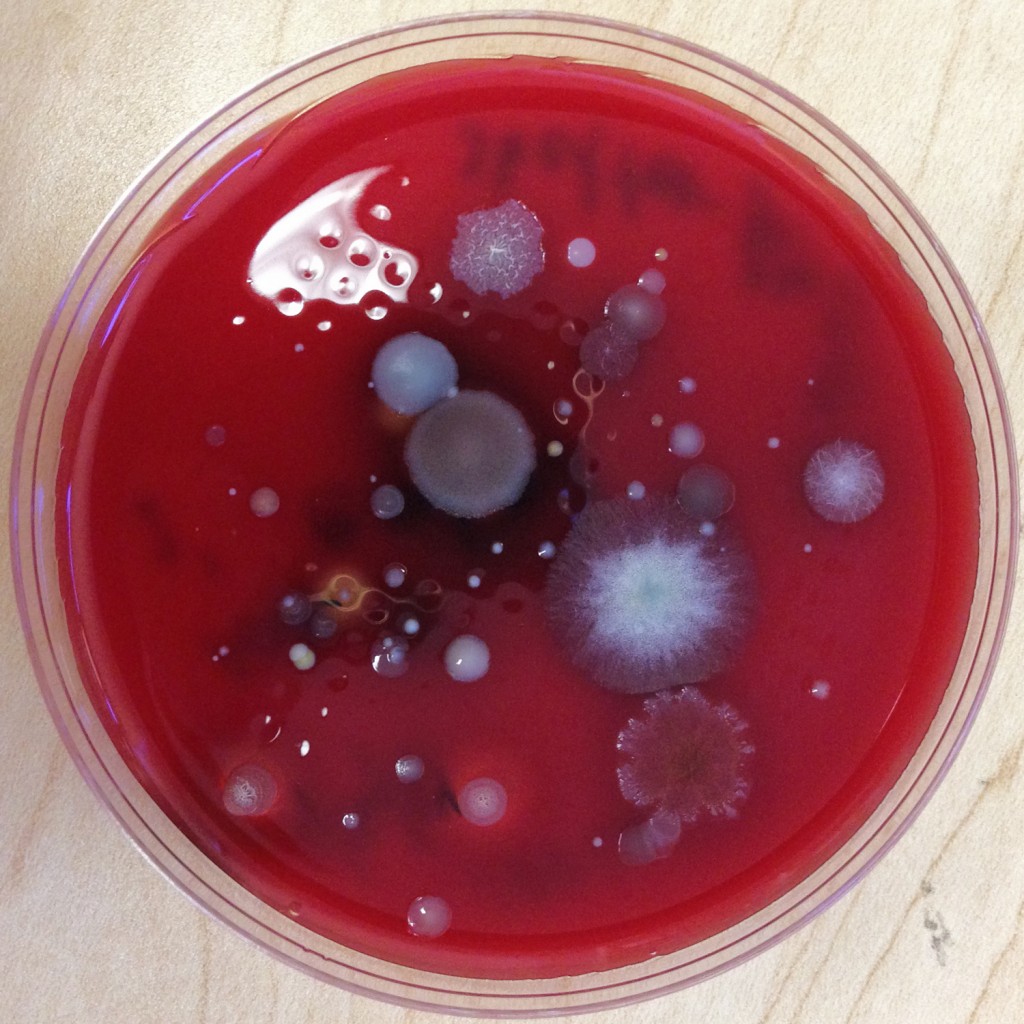Some of you may know that we ran a Kitty Kickstarter back in May to start a participatory research project inspired by the American Gut Project only for cats. When you sign up, kittybiome will sequence the gut microbiome of your cat and provide you with the results, so you can see how your cat compares with other cats. At the same time, you will contribute to our understanding of how the gut microbiome varies across cats and in cats with different health conditions. And we are also interested in how cats affect the microbiology of buildings. As part of the project, UC Berkeley undergraduate, Alex Martin has been collecting samples at the animal shelter in Berkeley. In the process, she became interested in how FIV status might affect the microbiome. We are interested in recruiting some additional participants who have an FIV positive cat living with an FIV negative cat. Here is a cross-posting by Alex Martin about this from our new kittybiome blog:
With the support of our Kickstarter backers, we’ve been able to collect samples from more than a hundred shelter cats in the Bay Area, many from Berkeley Animal Care Services. One comparison that we’re particularly interested in is how the gut microbiomes differ between shelter and house cats. Coming to an animal shelter is unfortunately quite stressful for some cats, and being subject to prolonged periods of stress can certainly affect the microbiome. We expect there to be some major differences in the microbiomes of shelter cats when compared to house cats who have had ample time to acclimate to a stable environment.
In addition to collecting samples from shelter cats who will be adopted into homes, we’ve been taking samples from feral cats. A Bay Area nonprofit, the Spay Neuter Impact Program (SNIP), traps, neuters, and vaccinates feral cats, then re-releases them. The group neuters hundreds of feral cats each year to help control the local populations, and we were able to collect samples while the cats were anesthetized for surgery.
As we’ve worked with these organizations, we’ve become increasingly interested in looking at the microbiomes of cats with Feline Immunodeficiency Virus (FIV). The virus is related to HIV, but cannot be transmitted between species. FIV-positive cats can sometimes progress to having Feline AIDS, making them more vulnerable to secondary infection. Often, however, these cats live long, healthy lives comparable in span to a cat without FIV.
The Nine Lives Foundation has provided us with several samples from FIV-positive shelter cats, but in order to draw some more concrete comparisons, we’re looking to get samples from homes that have at least one FIV-positive cat and one FIV-negative cat. KittyBiome will sequence the microbiomes of both kitties for free. If you or someone you know has cats that meet these requirements, please reach out to us!


We have a FIV positive cat that my son rescued a stray a few months ago. We also have a FIV negative cat. The cats have some interaction. Do you need more cats for your study? Do you need to live in your area to participate? The FIV cat is symptomatic with chronic eye infection.
I don’t know if you are still seeking cats for the study, or if I need to live near UC Berkeley to participate. I’m in NJ. If the study is still active, and my location is not an issue, I would welcome the opportunity to participate.
I have a FIV positive neutered male. The test showed that the infection was advanced. I also have an FIV negative spayed female. Both were rescued from the same neighborhood. I also recently rescued the mate (before he was neutered) of my male cat. She is in my home as well, but is very feral so I have not yet been able to get her to the vet to be tested and spayed. I will take care of this in the coming week.